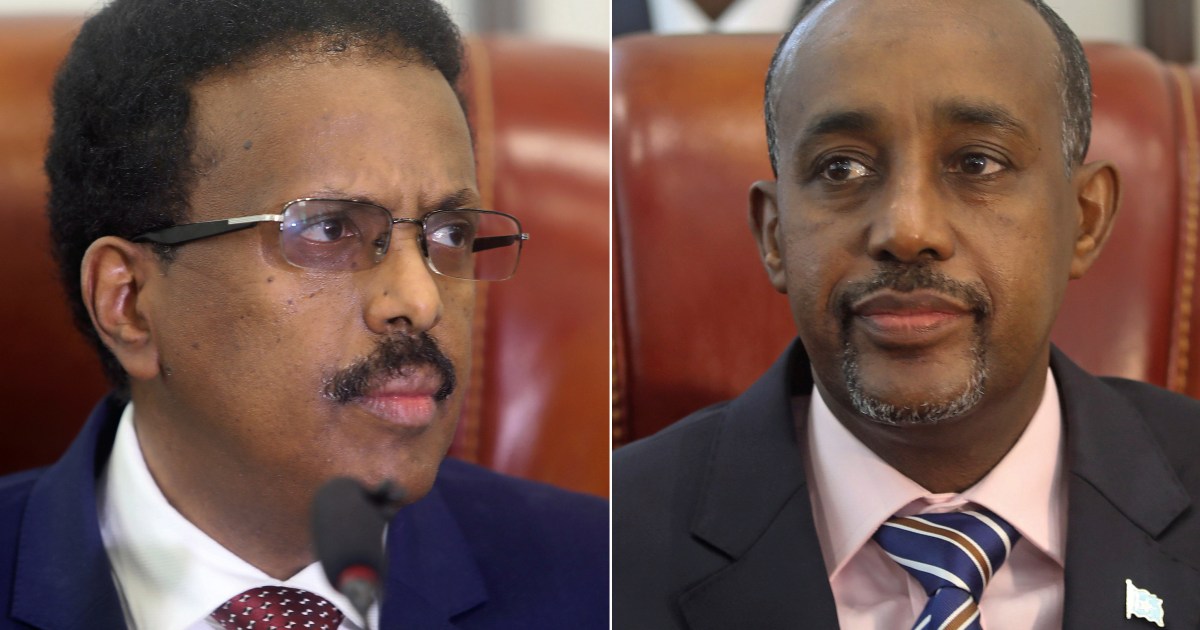Somalia’s president suspends prime minister amid election spat | News
Prime minister, marine forces commander suspended until corruption investigations are complete, president’s office says.
Somalia’s President Mohamed Abdullahi Mohamed has suspended the prime minister and removed the marine forces commander until corruption investigations are completed, escalating a destabilising dispute in the Horn of Africa country.
“The president decided to suspend prime minister Mohamed Hussein Roble and stop his powers since he was linked with corruption,” the office of the president said in a statement on Monday, accusing the premier of interfering with an investigation into a land grabbing case.
President Mohamed’s move comes a day after trading accusations with Roble of holding up ongoing parliamentary elections.
The long-delayed elections began on November 1 and were supposed to be completed by December 24, but one newly elected legislator said that, as of Saturday, only 24 of 275 representatives had been elected.
In a statement on Sunday, the Presidential office said Prime Minister Roble was “posing a serious threat to the electoral process and overstepping his mandate”.
Roble’s office later put out its own statement saying the president had spent “so much time, energy and finances in frustrating the national elections” and was “derailing the electoral process”.
In the statement, Roble said he would hold meetings to find ways to speed up the election and agree “on a capable leadership to spearhead timely and transparent elections” without offering more details on how long the process might take.
Under Somalia’s complex indirect electoral process, regional councils are meant to choose a senate. Clan elders are then meant to pick members of the lower house, which then picks a new president.
The president’s move reopens a confrontation that had been resolved when the president put Roble in charge of security and of organising its first direct elections in more than 30 years.
Factions of the security forces allied to Mohamed and Roble in April had seized areas of the capital, as the prime minister and opposition opposed a move to extend the president’s four-year term by another two years.
Clashes between the two groups forced between 60,000 and 100,000 people to flee their homes.
Somalia, which has had only a limited central government since 1991, is trying to reconstruct itself with the help of the United Nations and to fight the al Qaeda-linked group al Shabaab.




